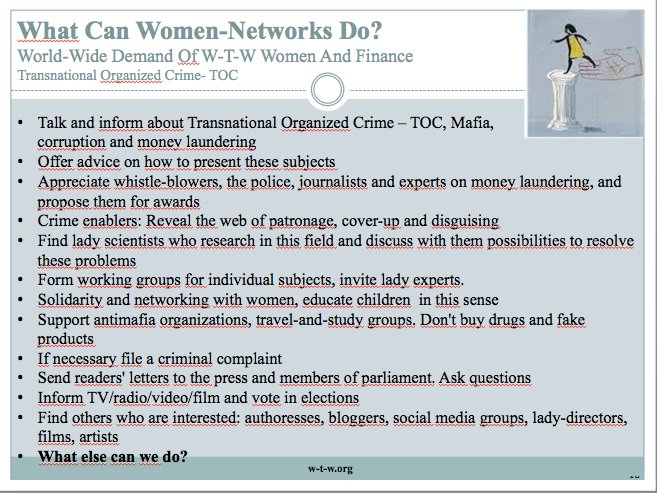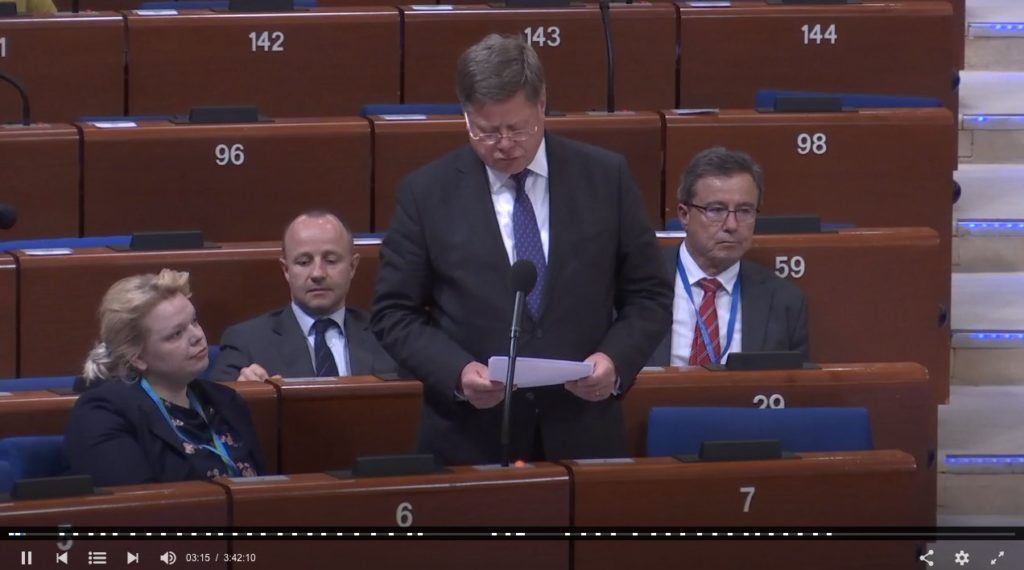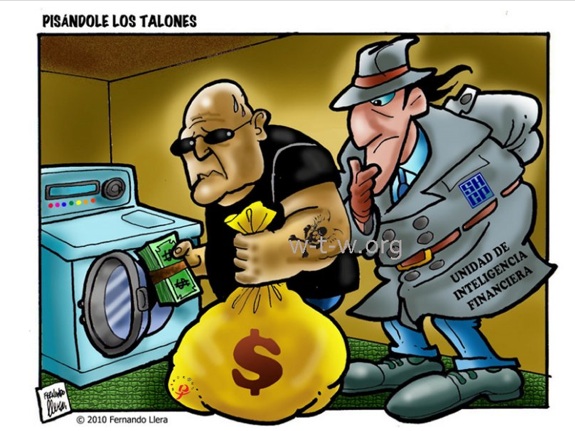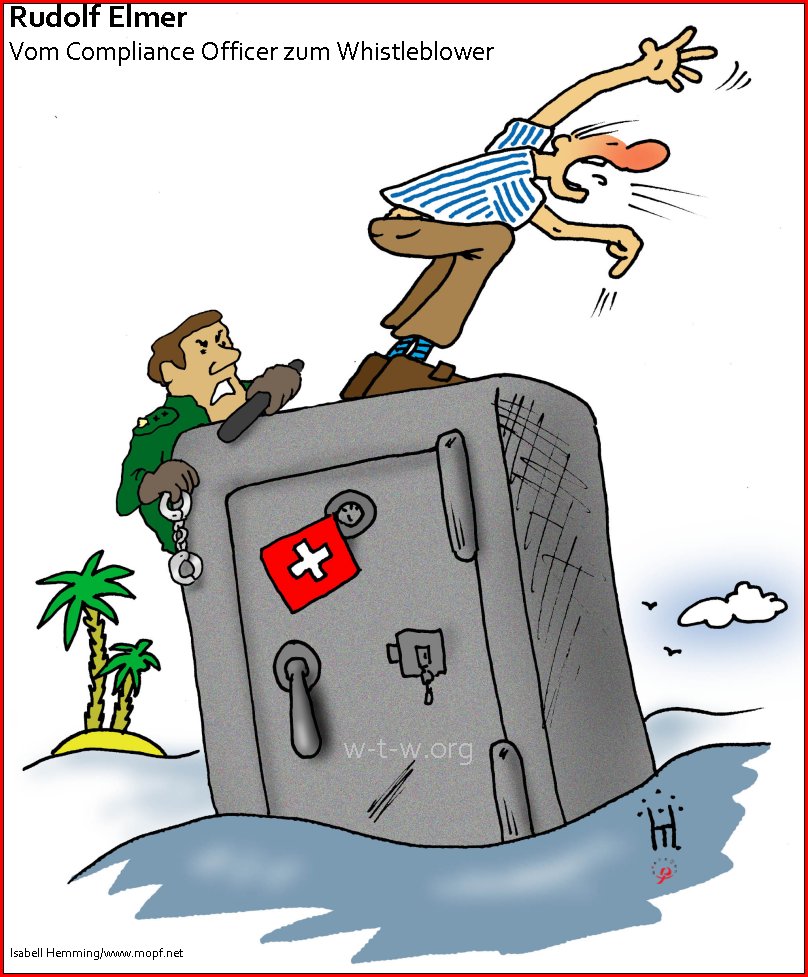GUE/NGL award for Journalists, Whistleblowers and Defenders of the Right to Information, in Honour of Daphne Caruana Galizia
and Defenders of the Right to Information, in Honour of Daphne Caruana Galizia
Commenting on the award, Daphne Caruana Galizia’s son,
Matthew, 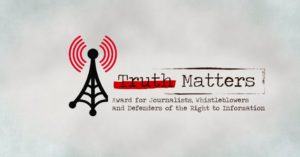 says:
says:
“As corruption and crime continue to erode freedom and undermine security, our societies increasingly fall back on individuals who take personal risks to raise the alarm on wrongdoing.”
“Whistleblowers need protection and deserve recognition.”
The winners where announced at the European Parliament in Strasbourg on Tuesday 16th April 2019….
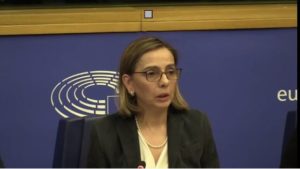
Watch here video intervention starts minute 37
guengl.eu
guengl-panamapapers.eu
Ladies and Gentlemen
from Yasmine Motarjemi PhD
Nyon, Switzerland
Today, after living nearly fourteen years in distress, in my thirst for justice, it is a day of hope. The sun is shining in my heart. Every day, for fourteen years, I have been looking through my mail in the hope of good news. A month ago, unexpectedly I saw that I had been nominated for this year’s Award for Journalists and whistleblowers in honour of Daphne Caruana Galizia ! What an honour it is to be associated with her !
I am very pleased to see that through this award, the importance of food safety, public health and human rights is being recognized. I hope that this award gives courage to employees in food and other businesses to stand for ethical practices and speak up when the health or interests of the public is at risk.
On this occasion, I would like to express my deepest gratitude to those who have nominated me, to the jury who has honoured me with this award and has given me the opportunity to speak in this forum. Also, I wish to express my warmest thanks and appreciation to those who believed in me and have stayed by my side during these difficult years. I hope that at this occasion I can also be the voice of other whistleblowers in Switzerland, France or elsewhere in the world, as well as those victims of abuse at work and those fighting for their justice. My thoughts are also with my family who have had to endure the consequences of the events.
***
Who am I and what did I do with my life? My name is Yasmine Motarjemi. I am a former senior scientist and Acting Director of the World Health Organisation. In my last position, I was an Assistant Vice President at Nestlé, in charge of global food safety. I held this position until 2010, when I was fired. It may be interesting for you to know that I was born in Iran but have a triple nationality in the countries of Iran, Sweden and Switzerland.
However, today, I am speaking here as a citizen of the world to the world. I would like to speak about health and safety, about life – your life. I would like to say that, regardless of political inclination, race or religion, human life matters. I would also like to say that I stand for citizens’ rights to know how the safety of products are managed and what some employees endure to ensure the protection of people’s health. I would like the public to know that we, whistleblowers, pay a high price for reporting information that the public need to know.
***
My battle for food safety, public health and human rights started 14 years ago. However, this was preceded by 25 years of hard work to improve food safety and public health in the world. In a competitive and macho world, the road to success was not easy. It involved many uphill struggles. My personal story of pain and suffering that Nestlé has inflicted upon me is nowhere near as important as the outrage that resides in me from my experience with the despicable manner that food safety has been managed in this specific case.
Time does not allow me to go into the details of mismanagement that I experienced in Nestlé (For information on this subject see the document entitled A battle in name of food safety, public health and human rights https://issuu.com/ymotarjemi/docs/a_battle_in_the_name_of_food_safety. I can only say that I really did not mean to become a whistleblower, but Nestlé management did so much wrong, that I felt that I had no choice.
Perhaps, the worst thing that the Nestlé management did was to refuse to pay attention to my internal reporting as a result of which incidents happened. To err is human, to persist in error is diabolical.
***
Instead of addressing my food safety concerns, after several years of excellent performance, Nestlé Management subjected me to a severe case of sustained and persistent psychological harassment, which felt like torture to me. For four years, while continuing to fulfil the responsibilities of my senior position, my superiors stripped me from my projects and prerogatives, dismantled my team, humiliated me, isolated me, defamed me, denigrated my opinion, blocked my instructions, withheld information, spied on me, threatened me, forced me into impossible or humiliating jobs and they did all this and more without any regard for the implications of such practices.
The daily humiliations felt like being lashed over and over with a whip. The isolation and exclusion from the professional world felt like a prison, a large prison without walls and yet still a prison as no one talks to you, no one sees you and no one hears you. Sometimes one wishes to be dead rather than go through such harassment.
***
I share my story because my abuse is a symptom of an even deeper, much larger problem. If Nestlé or other companies can behave this way, break the law and bully individuals and communities alike, it is because public health and judicial authorities are failing to meet their responsibilities.
Even when I reported incidents to public health authorities, NGOs, Unions or my professional community, with few exceptions, they were not interested in investigating food safety management problems that I was reporting or in learning from my experiences.
What can explain this deliberate ignorance ? They are all afraid of Nestlé, I am told. Our society has been taken hostage by fear! I may say.
***
The only option for me was to report my case to judicial authorities. However, even then I was subjected to retaliation. Nestlé counter-sued me for violating professional secrecy. Nestlé also teamed up with my litigation insurance company, which I had to challenge in another court. The Fonds de Pensions Nestlé (Nestlé Pension Fund) sued me for my publications and my efforts to survive professionally. These are just a few of the major hurdles I have faced. However, the path to justice is often long, arduous and full of pitfalls. Victims have sometimes to confront false medical examinations, mischievous lawyers, sham investigations, misleading facts or half-truths, character assassination and more. It is difficult to put into words the cost I have paid in terms of my health, the well-being of my family, the strain on my financial resources and the impact on my life overall. Although the impact on me has been profound, it remains a symptom of an even larger problem.
The main problem is the justice system. After 8 years of judicial battles, standing alone against a giant corporation and other large companies, the Swiss court confirmed that I had been subjected to psychological harassment. However, surprisingly, the court refused to condemn Nestlé and to compensate me for my expenses and losses. To this end, after 8 years, it considered my request to be inadmissible and viewed that Nestlé had acted legally. The court decided to ignore the fact that Nestlé never examined my concerns for food safety. There were no consequences for the manager responsible for both the mismanagement of food safety and my harassment. He remained in his senior position and was never sanctioned.
When the justice system allows companies to commit social and professional assassination of whistleblowers without sanction and turns a blind eye to their alerts against wrongdoings, then I can only conclude that our system is corrupt.
***
Although my whistleblowing experience started by attempting to deal with lapses in food safety management, my story ends by showing a total dysfunction of our society.
My experience is similar to the situation of other whistleblowers in Switzerland and in other countries, as if the same formula is applied again and again to dismantle the lives of whistleblowers, our health, reputation, social status and financial security. The irony is that my story is happening in Switzerland, the country that best symbolizes democracy and rule of law, and it is taking place under the nose of the very organisations set up to protect human rights and public health.
Although, the events reported above took place in Switzerland, the results of Nestlé mismanagement in food safety can have consequences anywhere in the world. My case shows that, in a globalised world, the lack of a fair legal and judicial system in Switzerland, as it pertains to whistleblowers, is a threat to the interests of communities worldwide.
Thank you for this award which definitely brings a positive note to this chapter of my life. The Persian poet Rumi (1207-1273) describes well this day, this moment, of my life:
“Your legs will get heavy and tired.
Then comes a moment of feeling,
the wings you’ve grown, lifting.”








